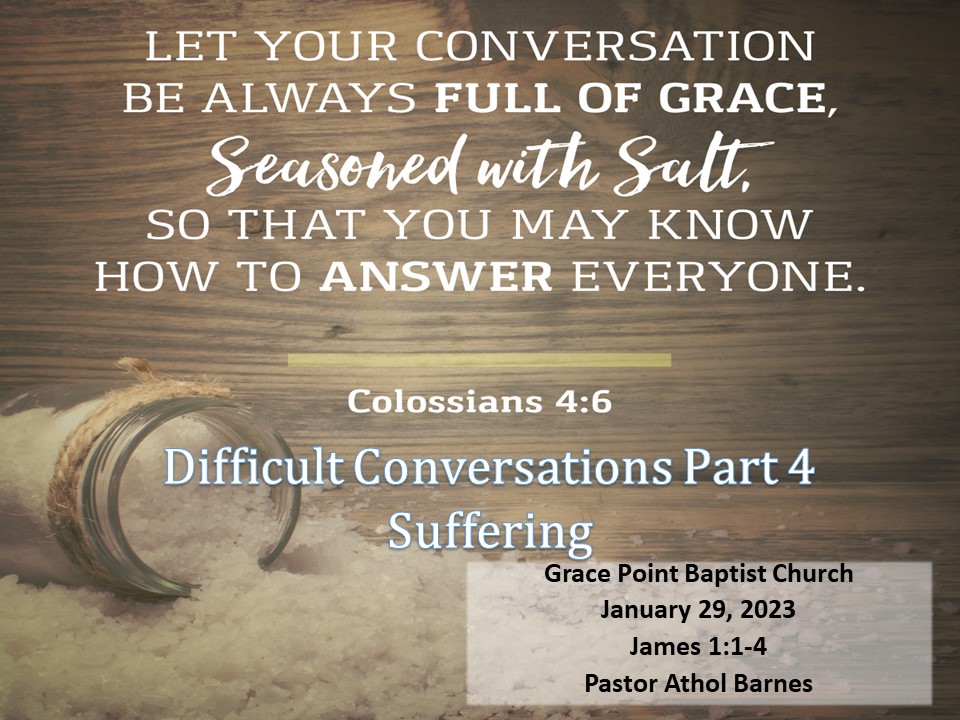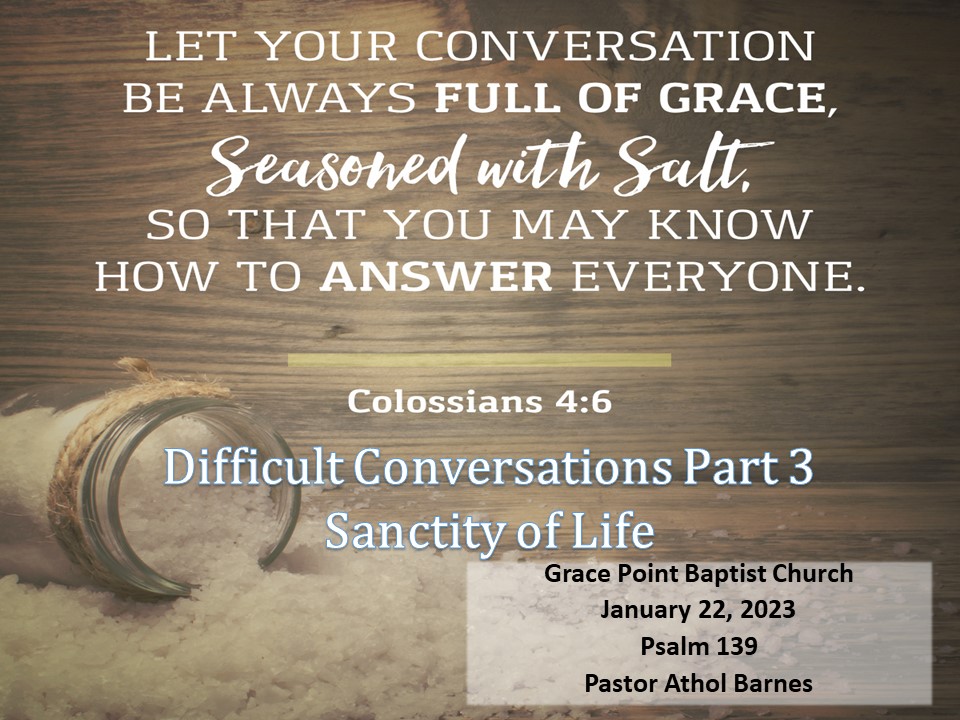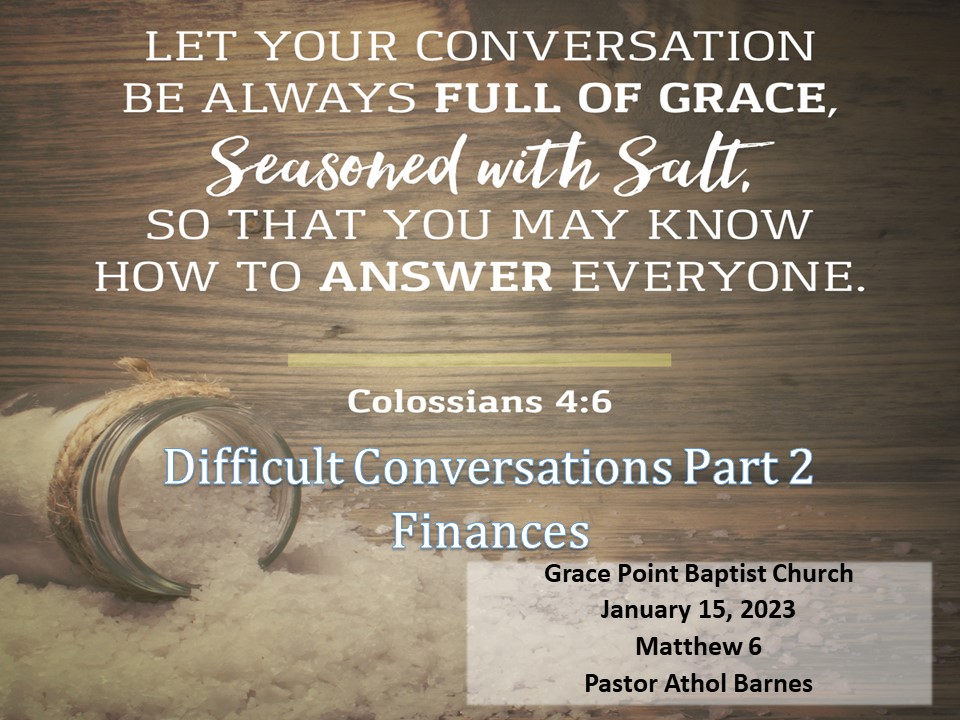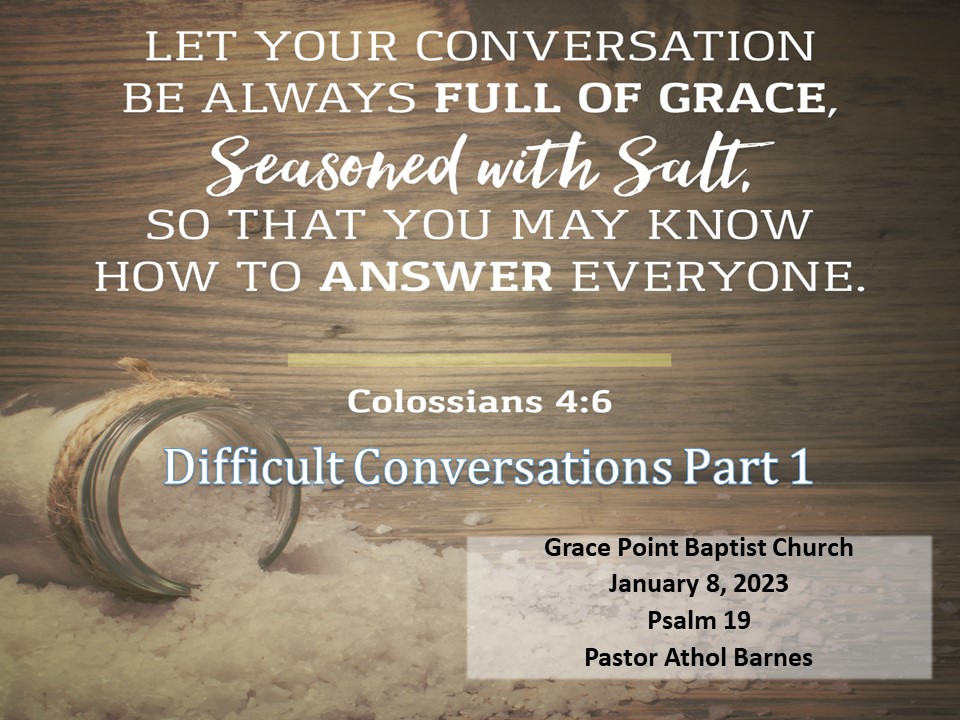
Everybody who has ever lived has experienced some kind of suffering.
The Bible speaks a great deal about suffering. In James 1, the half-brother of Jesus is writing to the tribes of Israel who have been dispersed from the promised land because of persecution. He was writing to a suffering people.
One would think he would be commiserating with them and consoling them, but rather he says, “consider it pure joy”. In our culture this seems insincere and even uncaring. However, James knows something that we so easily forget, life is temporal.
As children of God, those who have submitted to the Lordship of Jesus over our lives, we also submit to the refining and the testing of God in our lives.
James 1:4 is a wonderful promise, “Let perseverance finish its work so that you may be mature and complete, not lacking anything.”
God is not satisfied with baby Christians. He wants so much more for us. God wants us to grow in faith, spiritual maturity, and in our relationship with him. The maturity described in James 1:4, comes through trials and testing.
You might be amid the fire right now, crying out to God for relief for the suffering you are going through. The Bible encourages us to persevere and not to give up (James 1:12).
Suffering exists in the world because sin exists. When Adam and Eve sinned, death and suffering became the common human condition. The introduction of sin into creation, gave Satan a limited rule as the god of this age.
There are various sources of suffering.
- Our own poor choices cause suffering. Making choices that are detrimental to our health and wellbeing. This includes alcohol, drug abuse, and reckless behavior.
- We also suffer because of fallen human nature. People are sinful by nature and do things that hurt others.
- Many times, suffering is as a result of Satan and his demons (John 10:10 and Job 2:4-6). Sometimes we give the enemy a foothold by the choices we make. Living with sinful behaviors, we experience the suffering that Satan inflicts, simply because we have stepped out of the covering of God over our lives.
If you are experiencing suffering today because of sinful choices, repent, get back to your first love and put on the full armor of God as we read in Ephesians 6.
- Sometimes God causes suffering, ultimately, He is sovereign. God is not mocked and when people persist in sin, God causes suffering as judgement. God does not inflict suffering out of sadistic pleasure, but out of a desire to draw people to Himself. When people refuse to repent, the suffering serves as part of the due penalty for sin (Romans 6:23).
- Then we have the suffering that God uses to train, refine, and test His children. In Hebrews 12, the author encourages us to submit to discipline for our good (Hebrews 12:7 and 11).
Whether God intentionally causes suffering or allows it in our lives, He uses it for our good.
As we grow in faith and confidence in the goodness of God, no matter how hard the journey, when we see our Heavenly Father face to face, our eyes will be opened and we will be eternally grateful (2 Corinthians 4:16–18).
Sometimes the suffering seems too much to bear, and we wonder why God allows a person to suffer so much pain through no apparent fault of his or her own. In time like this, it is okay to cry out to God and be real with our emotions. This is developing our relationship with God, the tension of growing and trusting.
Sometimes, it takes suffering to enlarge our view of God.
The apostle Paul knew about suffering. In 2 Corinthians 12 we read that to keep him from being conceited, God gave him a thorn in the flesh, a messenger of Satan to harass him.
Paul pleaded with God for it to be removed. We have no details about his suffering but God responded to his plea in 2 Corinthians 12:9, “But he said to me, “My grace is sufficient for you, for my power is made perfect in weakness.” And Paul goes on…” Therefore I will boast all the more gladly of my weaknesses, so that the power of Christ may rest upon me. 10 For the sake of Christ, then, I am content with weaknesses, insults, hardships, persecutions, and calamities. For when I am weak, then I am strong.”
It is a good thing we don’t know what his “thorn” was, because no matter what our sufferings may be, we are able to apply the lessons Paul learned and gain encouragement.
We may not know what the “thorn in the flesh” was, but we must never forget that God allowed it. God is in control and allowing your thorn in the flesh for His purposes and His glory.
CS Lewis writes, “we can ignore even pleasure, but pain insists on being attended to. God whispers to us in our pleasures, speaks in our conscience, but shouts in our pains: it is His megaphone to rouse a deaf world.”
God used Paul’s thorn in the flesh to focus his attention on Christ.
If God has allowed you to suffer, some kind of painful emotional, physical or spiritual struggle, pray that God uses this to draw you into a place of greater dependence on Him. And ultimately towards being mature and complete, not lacking anything (James 1:4).





